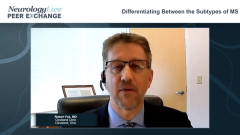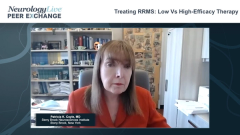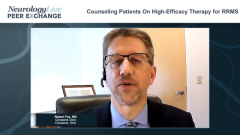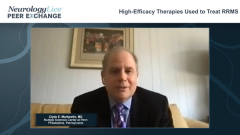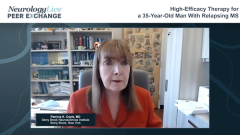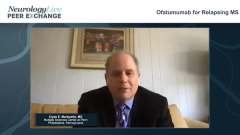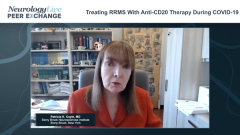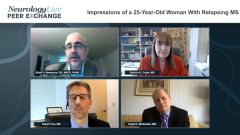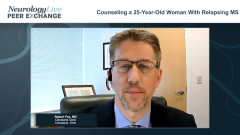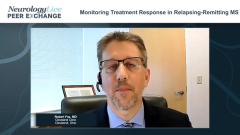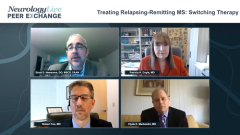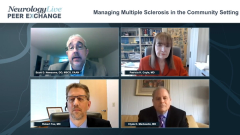
Relapsing-Remitting MS: Current Treatment Gaps
Gaps in care that neurologists experience when treating patients with relapsing-remitting multiple sclerosis and considerations for recommending lifestyle modifications to help manage symptoms.
Episodes in this series

Scott D. Newsome, DO, MSCS, FAAN: Pat, why don’t you tell us about the future for treating patients? Talk about the symptomatic care and the healthy lifestyle choices because we always talk about the disease-modifying therapies [DMTs] and what the MRI scan shows, how much reduction in relapses in this study. Until recently, there has not been a lot of focus on wellness, and there are definitely studies out there that are showing the impact of healthy lifestyle and wellness.
Patricia K. Coyle, MD: I will start by saying that we need to decrease our misdiagnosis rate as we try to make the diagnosis as early as possible. To me, that argues for a thorough work-up. Secondly, we need to get treatments for neurodegeneration, and we need CNS [central nervous system] repair. Those are gaps; those are lax. We need to develop them. Thirdly, you are speaking about things that boost CNS resiliency and the ability to repair, and this makes wellness important. It makes healthy lifestyle choices important, such as not smoking and maintaining an optimum body weight. Stimulation mentally, socially, and physically becomes important. It is interesting, we come back to this aging phenomenon. We know that, as the brain ages, it becomes less able to contract, and we are beginning to see people talk about the development of treatments that might rejuvenate the brain. That is an exciting possibility in MS [multiple sclerosis].
If you look at the person in totality, quality of life matters. Quality of life can have a negative impact, and the key to quality of life is optimum management of symptoms. We do not talk about it that much, but we recognize symptoms in MS. Some of them can clearly be injurious to the central nervous system, such as depression, which is a comorbid condition as well. Developing better symptomatic strategies is a key important component. I will also add that we have heard about developments in better following patients, parameters to follow. Looking at activity outside of the brief time in the outpatient department and tracking activities at home is going to be a promising frontier for us in the future.
Scott D. Newsome, DO, MSCS, FAAN: I agree. There are studies looking at actigraphy, which watches how much activity someone does. There might be something here. People are studying this, and that may help us care for people in a greater way such that, when the patient comes in and says, “I am exercising. I am getting my 10,000 steps,” I have the data that show they are or are not. They may be sitting on their couch like I will be this weekend.
We have to treat the person as a whole. As was mentioned previously, it is not just about the DMTs. The DMTs are not necessarily going to improve the quality of life that the person has today. We have to focus on treating the whole person, and that involves symptomatic interventions in care, exercise, and all the things that go into it.
Thank you for watching this NeurologyLive® Peer Exchange. If you enjoyed the content, which I hope you did, please subscribe to our e-newsletters to receive up-and-coming Peer Exchanges and other great content right in your inbox.
Transcript Edited for Clarity
Newsletter
Keep your finger on the pulse of neurology—subscribe to NeurologyLive for expert interviews, new data, and breakthrough treatment updates.


